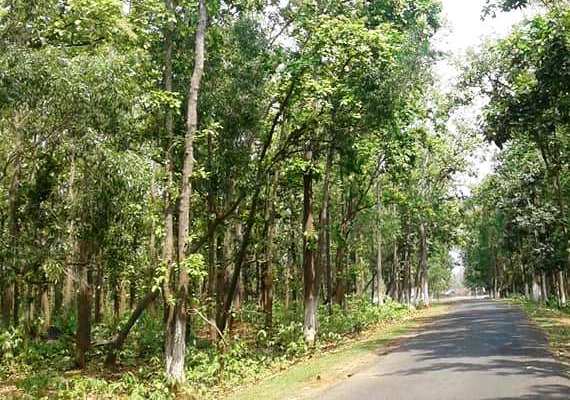Bhubaneswar: With the United Nations predicting that urban population across the globe is likely to touch 68 per cent of the total population by 2050, up from the present 56.2 per cent, urban areas are facing enhanced stress.
Further, pollution from various sources, heavy traffic, congested housing, massive concrete structures and loss of greenery lessen the quality of environment in cities, thereby reducing their livability. Hence, undertaking eco-friendly measures and creating sustainable landscapes in urban areas are the need of the hour.
Urban landscapes create, restore and preserve forests, recreational parks, nature centres and other sylvan settings that add to the quality of urban environment.
Experts threw light on this at a webinar on ‘Urban landscaping from environmental perspective’ organised by Odisha Environmental Society (OES) Sunday.
Experts also said that development of sustainable landscapes in cities assists in sequestering carbon, cleaning the air pollutants, recharging and storing water, moderating extreme temperatures, increasing energy efficiency, restoring habitats, and creating value through significant economic, social and environmental benefits for communities.
Thus, landscaping with appropriate planning by expert architects needs to be given due importance while establishing new cities or making expansion of the existing ones. These can also provide befitting solutions to the challenges of global warming and climate change.
Addressing the webinar as the chief guest, Head of Department, Floriculture and Landscaping, OUAT, Sashikala Beura stated that in the present scenario, landscaping of urban areas is of immense significance. “This will not only create attractive, pollution-free environment, but will also add some naturalness to the concrete jungles in cities,” she said.
“The greenery and beauty of colourful flowers in the avenues and public parks will be the source of recreation and relief from mental stress. Landscaping will have ecological, social, economic and aesthetic values. The environmental benefits include improvement in air quality, precipitation and humidity, noise abatement, temperature regulation, carbon sequestration, water storage and soil conservation, wind protection, and glare and reflection control. Hence, landscaping in urban areas needs to be given top priority,” she added.
OES president Sundara Narayan Patro emphasised on plantation of IUCN-identified threatened plant species of the state in urban areas so as to ensure their conservation and take out their names from the red list.
OES secretary Jaya Krushna Panigrahi stated that cities and mega cities are turning out to be concentration centres of human population; but their quality of environment and livability are not being given due importance.
